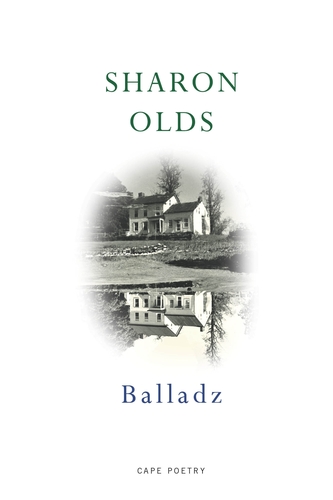Balladz (SHORTLISTED, TS ELIOT PRIZE 2023)
Sharon Olds
(Cape Poetry, 2022); pbk, £12
I’ve long been an admirer of the work of Sharon Olds, and I’d venture to say that she has taught me more about women and their relationships with the world than any other poet. This book was published in her 80th year and serves as proof that she is still a vital and productive voice. Balladz is also as accessible and engaging as ever.
The collection is gathered into sections involving semi-formal explorations of ballad and elegy, with a curious middle sequence of poems unashamedly in the style of Emily Dickinson. Thematically she considers lockdown and its effects on her and others: the loss of her partner and of friends, and, of course, topics rarely far from her imagination and her pen—sex, particularly her regular explorations of masturbation. There’s an impious imagining of Pope John Paul II’s penis, featuring an image which once read cannot be unseen in ‘Joined Ballad’
It hangs deep in his robes, a delicate
clapper at the center of a bell……and at night
when his eyes sleep, it stands up
in praise of God.
It is this sequence of ballads where I find the most pleasure in the collection; she shares experiences of teenage carnal encounters, sometimes accompanied by a sensation approximating love but more often by fascination with the physical, and a realisation that she has found a purpose for both her body and her intellect:
breaking-
open flowers around our heads,
we tasted the universe,
together,
and within that pistil thing between my
legs I broke into cherry blossom.
It’s arguably Olds’ frankness in these poems of physicality that makes her work as accessible as it is. When everything is allowed and nothing is unsayable, the reader can move beyond the coy convolutions of less confident poets and concentrate on the power of language and image to speak without equivocation where other poets may fear to tread.
Olds’ frankness isn’t limited to poems concerned with explorations of physical fulfilment; she stares grief and loss in the face in an equally uncompromising manner. ‘When They Say You Have Maybe Three Months Left’, from the collection’s final section ‘Elegies’, observes,
Sometimes you fall asleep as I’m talking to you.
And you’ve said: I want you to be reading me a
poem when I die.
The poet comes close to finding a personal solution to the natural order of life and death at the conclusion of this fine poem musing,
And now we are there! Maybe this has been
death all along! Maybe life is a
kind of dying. Maybe this has been heaven.
This kind of directness might be considered naïve in the hands of other poets, but Olds has been around long enough to have earned the right to speculate on such mysteries in whatever language she chooses.
The short sequence ‘Amherst Balladz’ owes much to Emily Dickinson’s imitable style. Ballad 4 opens with
I Slept – in your Town – behind a Door
Which from Inside – could not be Opened –
And Dreamed – as Usual – of Death –
Desire – Rain –
And this section feels slightly out of place within the collection. Perhaps the Olds voice is there, but with such a stilted Dickinsonian accent that it feels slightly mannered—not a pastiche or an amplification but an unnecessary borrowing.
Perhaps experimenting with an homage to Dickinson was a long-held ambition of the poet, and maybe the world’s flirtation with extinction or, at the very least, material changes to society has set her on the path of putting her own house in order somewhat. A feature of that might be ascertained from Olds’ expressions of guilt at the privilege she has enjoyed in the successes of her life. This is clearly evidenced in ‘New Year’s Song’ taken from the opening section ‘Quarantine’ which ends with an epiphany:
For a moment the core of my life
was not desire, but the knowledge of my unearned luck.
This is not late-career imposter syndrome—Olds’ and her work is revered with good reason—but is maybe a final understanding that there’s more to success than talent.
This collection highlights the poet’s undimmed creativity in the face of acute stimuli; since her previous collection Arias in 2020, Olds’ world has been rocked by the same things that have rocked all our worlds—the lost years of COVID, and the emotional impact of the pandemic. This collection gathers up these influences and themes, and presents them alongside the candid intimacies and honest wit that Olds has shared with us across forty years of her poetry. Highly recommended.


Leave a Reply